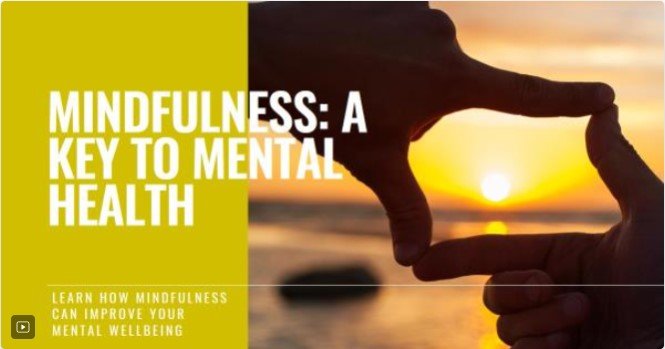What are the 3 Mental Barriers?
Mental barriers are powerful obstacles that can hinder personal growth and prevent individuals from achieving their goals. These barriers, also known as psychological barriers or mental blocks, are formed by limiting beliefs and assumptions we have about ourselves, others, and the world around us. Overcoming these barriers is essential for self-improvement and breaking through the limitations that hold us back.
In the journey of personal growth, it is crucial to identify and overcome the mental barriers that impede progress. These barriers can manifest in various aspects of life, such as career advancement, building meaningful relationships, and overall success. By understanding the three types of mental barriers, individuals can develop effective strategies to grow and thrive.
Key Takeaways:
- Mental barriers are limiting beliefs and assumptions that hinder personal growth and goal achievement.
- There are three types of mental barriers: beliefs about oneself, beliefs about others, and beliefs about the world.
- Overcoming mental barriers requires self-awareness, taking action, and seeking support.
- Strategies such as psychotherapy, journaling, stepping out of the comfort zone, and practicing self-compassion can help break down these barriers.
- By addressing and overcoming mental barriers, individuals can achieve personal and professional success.
Beliefs about Myself
Mental barriers about oneself can have a significant impact on various aspects of life, including career, relationships, and personal development. These barriers often stem from self-limiting thought patterns that give rise to self-doubt and negative thinking. Individuals may find themselves believing that they lack the necessary abilities or are simply not good enough to pursue certain opportunities. It is crucial to challenge these beliefs and acknowledge that they are often based on subjective perceptions rather than objective reality.
Self-doubt, one of the common self-limiting thought patterns, can create a perceived lack of ability and hinder individuals from reaching their full potential. Negative thinking reinforces these barriers, leading to feelings of inadequacy and Impostor Syndrome. However, it is essential to recognize that these beliefs are often unfounded and do not accurately reflect one’s true capabilities.
Overcoming these mental barriers requires a shift in perspective and a willingness to challenge negative self-perceptions. By questioning and reframing these beliefs, individuals can break free from the constraints of self-doubt and negative thinking. They can develop a more positive and empowering self-image, opening themselves up to new opportunities and achieving personal and professional growth.
“The only limits in life are the ones you set for yourself.” – Unknown
By cultivating a mindset of self-belief and resilience, individuals can overcome self-doubt and embrace their true potential.
Strategies for Overcoming Self-Limiting Thought Patterns:
- Practice self-compassion and challenge negative self-talk
- Set realistic goals and celebrate achievements along the way
- Surround yourself with supportive and uplifting individuals
- Seek professional help, such as therapy or coaching, to address underlying issues
- Focus on personal strengths and accomplishments
Breaking free from self-limiting thought patterns can be a transformative journey that paves the way for personal growth and fulfillment. It starts with recognizing that beliefs about oneself can be subjective and malleable, allowing room for positive change and self-empowerment.
Beliefs about Others
Mental barriers about others can often arise from limited information and assumptions based on our own beliefs and experiences. We have a tendency to make judgments and form opinions about others without fully understanding their abilities or the circumstances they are in. These beliefs can lead to limiting behaviors and negative judgments that hinder our ability to build positive relationships and interact effectively with others.
One contributing factor to the formation of these beliefs is the filling-in phenomenon, where our brains automatically fill in missing information based on our existing knowledge and biases. This phenomenon can cause us to make snap judgments about others, assuming things about them without any supporting evidence. It is important to recognize this phenomenon and be aware of its impact on our perceptions.
Assumptions play a significant role in shaping our beliefs about others. We often make assumptions based on limited information or stereotypes that we have been exposed to. These assumptions can create a distorted perception of others and can prevent us from truly understanding their unique perspectives, qualities, and capabilities.
“The only way to understand someone is to get to know them. Only then can we realize that our assumptions and limited information were causing us to judge and limit our interactions.” – Unknown
These beliefs about others can manifest in limiting behaviors, such as avoiding certain individuals or situations, making negative comments or judgments, or even sabotaging potential opportunities for collaboration or growth. Such behaviors not only limit our own personal development but also contribute to a negative cycle of judgments and misunderstandings.
To overcome these mental barriers, we need to challenge our assumptions and actively seek more information about others. This can involve engaging in open-mindedness and approaching interactions with curiosity and a willingness to learn. By actively seeking to understand others and their perspectives, we can overcome the limitations imposed by our beliefs and form more genuine connections.
Recognizing the positive intentions of others is also crucial in breaking down these mental barriers. Often, our negative judgments about others stem from our own insecurities or biases, which prevent us from seeing the good in them. By consciously focusing on their positive intentions and contributions, we can shift our beliefs and attitudes towards a more open and inclusive mindset.
It is important to remember that beliefs about others based on limited information and assumptions are not accurate representations of reality. By challenging these beliefs, seeking to understand others, and recognizing the positive intentions of those around us, we can break free from these mental barriers and foster more meaningful and harmonious relationships.

Example of Limited Information Impacting Beliefs about Others
| Belief | Limited Information | Alternative Perspective |
|---|---|---|
| She is always late. | Not considering her busy schedule or transportation issues. | She has a demanding job and faces challenges with traffic in her area. |
| He is lazy. | Ignoring his health issues or personal struggles. | He is dealing with a chronic illness that affects his energy levels. |
| They are unfriendly. | Not taking into account cultural differences or shyness. | They come from a reserved culture and may find it challenging to engage in small talk. |
Beliefs about the world around you
Beliefs about the world around us are shaped by our cultural values and upbringing. These deeply rooted beliefs act as unconscious barriers that can limit our thinking and hinder our ability to consider alternative perspectives. When we hold onto rigid and narrow-minded beliefs about how things should be done or what is considered normal, we close ourselves off to the opportunity of innovation and creativity.
It is crucial to challenge these mental barriers and be open to different ways of thinking and approaching goals. By breaking free from the confines of our ingrained beliefs, we can expand our understanding and respect for diverse viewpoints. This opens up new possibilities and enables us to find alternative solutions to global challenges.
Alternative perspectives provide us with a broader view of the world and allow us to evaluate the opportunity costs associated with our current beliefs. When we are willing to explore and understand different cultural values, we gain valuable insights that can lead to personal growth and a more inclusive society.
By embracing alternative perspectives, we can overcome the limitations imposed by our unconscious barriers and establish healthier thought patterns. This shift in mindset not only benefits us individually but also contributes to the collective progress of society.
Benefits of Challenging Beliefs about the World:
- Greater understanding and empathy for different cultures
- Enhanced problem-solving skills through diverse perspectives
- Increased creativity and innovation
- Promotion of social harmony and inclusivity
| Beliefs about the World | Impact |
|---|---|
| Unconscious barriers | Limit our thinking and hinder considering alternative perspectives |
| Unhealthy thought patterns | Impede innovation and creativity |
| Cultural values | Shape our beliefs about the world |
| Opportunity costs | Help us evaluate the consequences of our beliefs and actions |
Conclusion
Mental barriers can act as obstacles to personal growth and hinder individuals from reaching their full potential. These barriers often manifest as anxiety, plateaus, and a lack of life balance, holding individuals back from achieving their goals and living a fulfilled life. However, it is important to remember that mental barriers are common and can be overcome with the right strategies and mindset.
Overcoming mental barriers begins with self-awareness. By recognizing and acknowledging the existence of these barriers, individuals can take the first step towards breaking free from their limitations. It is crucial to take action and actively work on challenging and reframing these negative thought patterns and beliefs.
Seeking support can also be beneficial when navigating through these mental obstacles. Psychotherapy, counseling, or coaching can provide individuals with valuable guidance and tools to address and overcome their barriers effectively. Additionally, journaling, stepping out of one’s comfort zone, practicing self-compassion, and utilizing digital tools can aid in the process of dismantling these mental barriers.
By addressing and overcoming mental barriers, individuals can unlock their true potential and achieve personal and professional success. It is important to remember that the journey towards overcoming mental barriers may not be easy, but with persistence, patience, and the right mindset, individuals can break free from their limitations and create a life of fulfillment and balance.
FAQ
What are the 3 mental barriers?
The three mental barriers are beliefs about oneself, beliefs about others, and beliefs about the world around us.
What are some common self-limiting thought patterns?
Self-limiting thought patterns include self-doubt, negative thinking, and feeling inadequate or not good enough to pursue certain opportunities.
How can I challenge my self-limiting beliefs?
Challenging self-limiting beliefs involves becoming aware of them, questioning their validity, and recognizing that they are often based on subjective perceptions rather than objective reality.
What are the consequences of having beliefs about others without fully understanding them?
Beliefs about others without full understanding can lead to limiting behaviors and negative judgments. It is important to seek more information, engage in open-mindedness, and recognize the positive intentions of others.
How can I overcome unconscious barriers created by my cultural values?
Overcoming unconscious barriers involves challenging unhealthy thought patterns, being open to different ways of thinking, and considering alternative perspectives.
How can mental barriers hinder personal growth?
Mental barriers can manifest as anxiety, plateaus, and a lack of life balance, preventing individuals from reaching their full potential. Overcoming these barriers requires self-awareness, taking action, and seeking support when needed.






